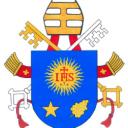Yahoo Answers is shutting down on May 4th, 2021 (Eastern Time) and the Yahoo Answers website is now in read-only mode. There will be no changes to other Yahoo properties or services, or your Yahoo account. You can find more information about the Yahoo Answers shutdown and how to download your data on this help page.
Trending News
Why do so many people recommend the Douay-Rheims Bible?
Why do many Catholics recommend the Douay-Rheims Bible over most modern transitions.?
11 Answers
- MistyLv 71 decade agoFavorite Answer
In their translation, the Douay-Rheims translators took great pains to translate exactly. Contrary to the procedure of the modern Bible translators, when a passage seemed strange and unintelligible they left it alone, even if obscure, and "let the chips fall as they may." The modern Bible translators, on the other hand, will often look at an obscure passage, decide what they think it means, then translate in words that bring out that meaning. The result is that the English is usually (not always!) easier to understand, but it is not necessarily what the Bible says; rather, it is their interpretation and understanding of what the Bible says. Moreover, the Holy Ghost may have hidden several additional meanings in the passage. Those meanings may well be completely translated out!
- DaverLv 71 decade ago
<<Why do so many people recommend the Douay-Rheims Bible?>>
The Douay-Rheims is the English translation of the Latin Vulgate - the very Bible used by the Vatican. Most Catholics will recommend this version of the Bible before any other acceptable Catholic Bibles.
<<Why do many Catholics recommend the Douay-Rheims Bible over most modern transitions.?>>
Because "modern" does not necessarily mean "better". Add to that the fact that non-Catholic Bibles don't even have the full canon of Scripture. Also, even non-Catholic Christians will atest to the large number of "garbage" translations out there.
- 1 decade ago
the Douay Rheims is the vernacular translation of the Latin Vulgate, the very first complete bible. That makes it the most accurate version of the bible in the vernacular language.
this is a short history of how the Douay was started.
The Fathers of the Douay-Rheims Bible
"The bloody oppression of Catholics in England―which followed on the heels of Henry VIII’s schism from the Roman Church―obliged those who would remain faithful to the ancient religion either to go underground or seek refuge on foreign soil. The clergy who had taken charge of preserving the study of Sacred Scriptures within the English-speaking world, were among those who were compelled to forsake their native land for a spiritual home beyond the shores of Britain. Their escape had become imperative if their work, which would benefit souls for generations to come, was to continue unencumbered. Among the learned clerics who were forced to flee were the biblical scholars of Oxford who eventually settled at Douay, in Flanders.
After the persecutions in England had subsided somewhat, the remaining faithful were still fending off attacks upon pure doctrine, and false interpretations of Sacred Scripture by the adherents of Anglicanism. Since expertise with the Latin language was very limited among the common folk, English Catholics needed a version of the Holy Bible in their language, accurately translated from the Latin Vulgate (the only Catholic Bible available at the time), by which to support the major tenets of the Faith."
read the rest at the link below.
- Anonymous1 decade ago
It's largely a matter of personal preference. I know a lot of Catholics who prefer the New American version. A lot of Catholics like the searchable, online version of the Douay-Rheims Bible, but personally, it's not my favorite translation.
Good to see you again!
Happy New Year,
The Marlboro Man
Source(s): Catholic - Anonymous1 decade ago
Modern translations are not translated properly and it is like reading a modern version of a work of Shakespeare.
Do you think that Shakespeare would want his work to be modernised? No, he would want you to read it as he wrote it. It is the same for the bible and the Douay-Rheims sticks as close as possible to what the Bible writers actually said and wrote down.
Source(s): Roman Catholic not a Buffet Catholic - balliewLv 44 years ago
The Jerusalem Bible is yet another version, the Revised time-honored version has a Catholic version (as nicely with the aid of fact the recent Revised time-honored version). The Catholic canon includes the books of the Deuterocanon (or "Apocrypha", nonetheless pupils tend to stay away from this term as a brilliant form of different books are additionally "apocrypha"); the Protestant canon (usually) does not includes those books.
- 1 decade ago
They dont. Catholics have multiple other more modern translations that are also approved. The DR ~1609 is the Catholic English speaker's version of the KJV 1611.
Part of the attraction to the old is that new 'scholarship' is not necessarily better. Also, the author of the translation, Jerome in ~400AD is trusted.
- cashelmaraLv 71 decade ago
Pope Damasus (Pope from 366 to 384) commissioned St. Jerome to make a new and accurate translation.
it is known as the Vulgate Version. Vulgate means common or vulgar in Latin and it was called so because Latin was the common tongue of the Western Roman Empire.
The Council of Trent (Italy) in 1546 declared it to be the only authentic and official version for the Latin Rite: " The same Sacred and Holy Synod ... hereby declares and enacts that the same well-known Old Latin Vulgate edition ... is to be held authentic in public readings, disputations,sermons, and expositions, and that no one shall dare or presume to reject it under any pretense whatsoever." (DZ. 785). It is still the official Catholic Bible today.
The Bible in English is the translation known as the Douay-Rheims Version. It was translated from the Latin Vulgate.
It is called Douay-Rheims because it was begun at Rheims and finished at Douay in 1582-1609 by a group of English priests exiled in France.
- Anonymous1 decade ago
Because it's their translation.
It's that simple. :)








